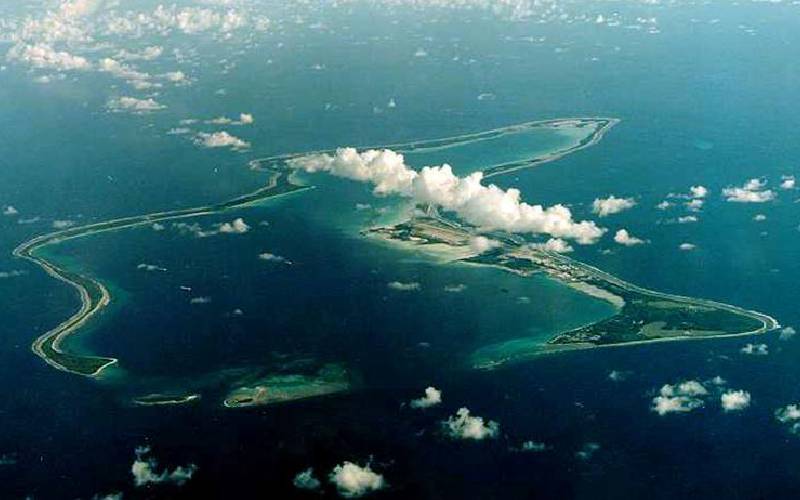×
The Standard e-Paper
Home To Bold Columnists

Diego Garcia, the largest island in the Chagos archipelago and site of a major United States military base in the middle of the Indian Ocean leased from Britain in 1966. [Reuters]
Britain and Mauritius have differences over who has sovereignty over Chagos islands which lie between Maldives in the North and Mauritius in the South.